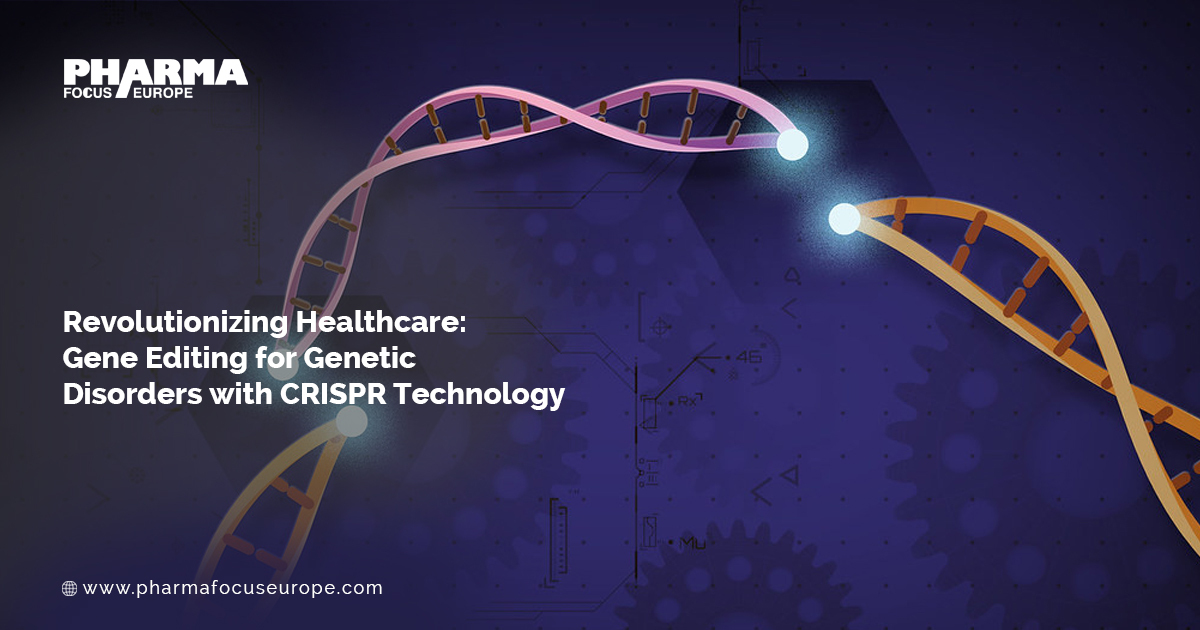
CRISPR technology, with its precision in gene editing, revolutionizes healthcare by enabling personalized treatments for genetic disorders. It’s potential for correcting mutations, therapeutic applications, in vivo gene editing, and early intervention holds promise for transformative solutions. However, ethical considerations and ongoing research are crucial for responsible implementation and unlocking the full potential of CRISPR in genetic medicine.

Introduction:
Gene editing using CRISPR (Clustered Regularly Interspaced Short Palindromic Repeats) technology has the potential to revolutionize healthcare, particularly in addressing genetic disorders. CRISPR is a powerful and precise tool that allows scientists to modify DNA sequences with unprecedented accuracy. This technology has opened up new possibilities for treating and preventing a wide range of genetic disorders.
Here are some key aspects of how CRISPR technology is revolutionizing healthcare in the context of gene editing for genetic disorders:
Precision Medicine:
Precision medicine, propelled by CRISPR technology, stands at the forefront of a transformative era in healthcare. CRISPR’s ability to achieve highly targeted and specific modifications to DNA empowers a level of precision that was once unimaginable. This revolutionary approach enables healthcare professionals to tailor treatments to the individual’s unique genetic makeup, promising a new era in the management of genetic disorders.
Traditionally, medical interventions have often taken a one-size-fits-all approach, but CRISPR’s precision allows for a paradigm shift toward personalized medicine. Genetic disorders, often caused by specific mutations in individual genes, can now be addressed on a case-by-case basis. CRISPR’s precision facilitates the correction of these genetic mutations, offering the potential for customized therapies that directly target the root cause of the disorder.
This level of specificity is particularly promising for monogenic disorders, where a single gene is responsible for the condition. By honing in on the precise genetic aberration, CRISPR opens avenues for therapeutic interventions that can correct these mutations, potentially leading to the eradication or substantial amelioration of the disorder. Moreover, CRISPR’s application extends beyond mere treatment. It holds the potential for early intervention and prevention by editing genes at a stage before symptoms manifest. This proactive approach could revolutionize the landscape of healthcare, allowing for the prevention of genetic disorders altogether and significantly improving long-term patient outcomes.
As CRISPR technology continues to advance, the vision of precision medicine becomes more tangible. The prospect of tailoring treatments to an individual’s genetic code offers not only hope for those currently afflicted by genetic disorders but also the potential to redefine our approach to healthcare, ushering in an era where treatments are as unique as the individuals they aim to help. However, as with any groundbreaking technology, ethical considerations and ongoing research will play crucial roles in shaping the responsible and effective implementation of CRISPR-based precision medicine.